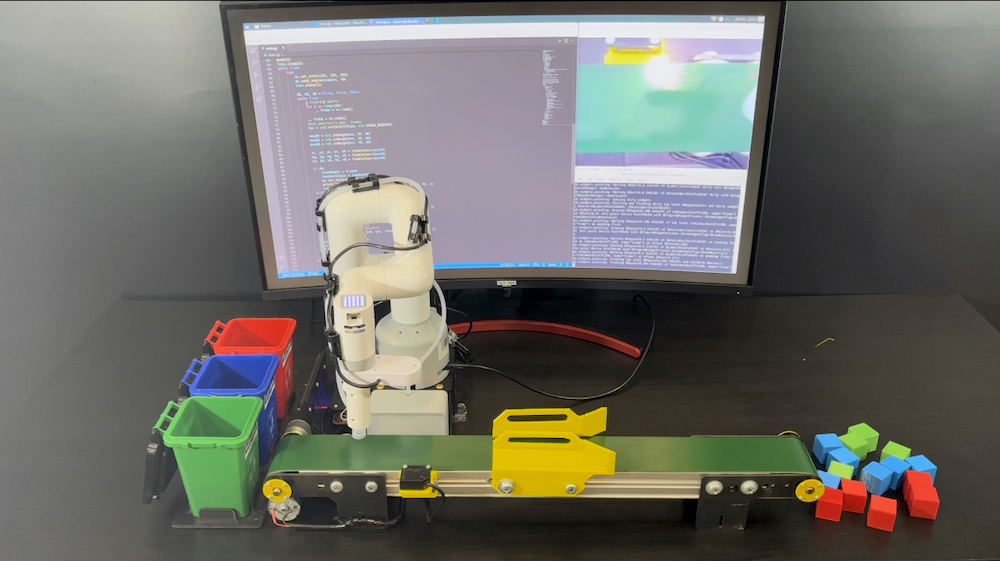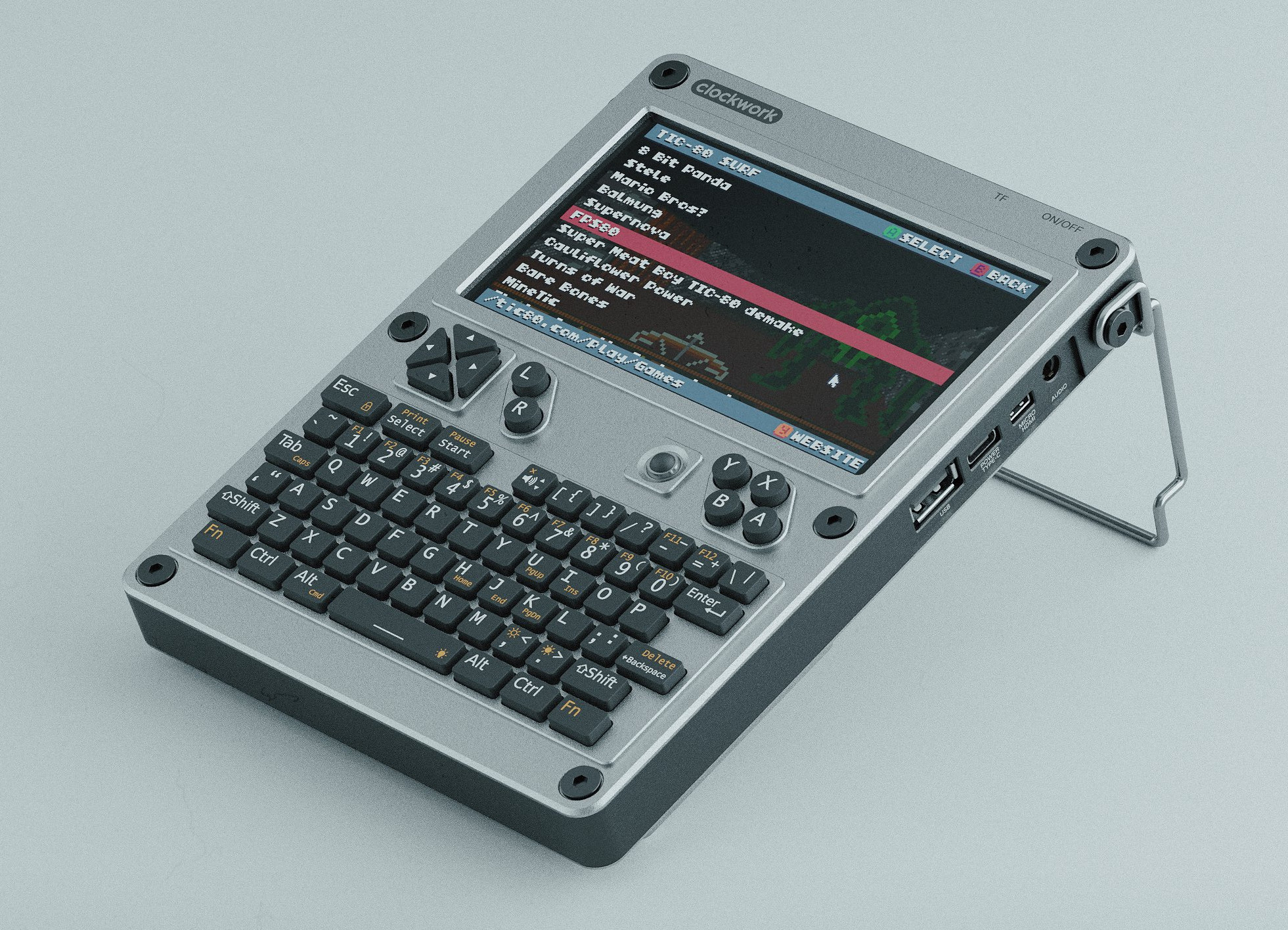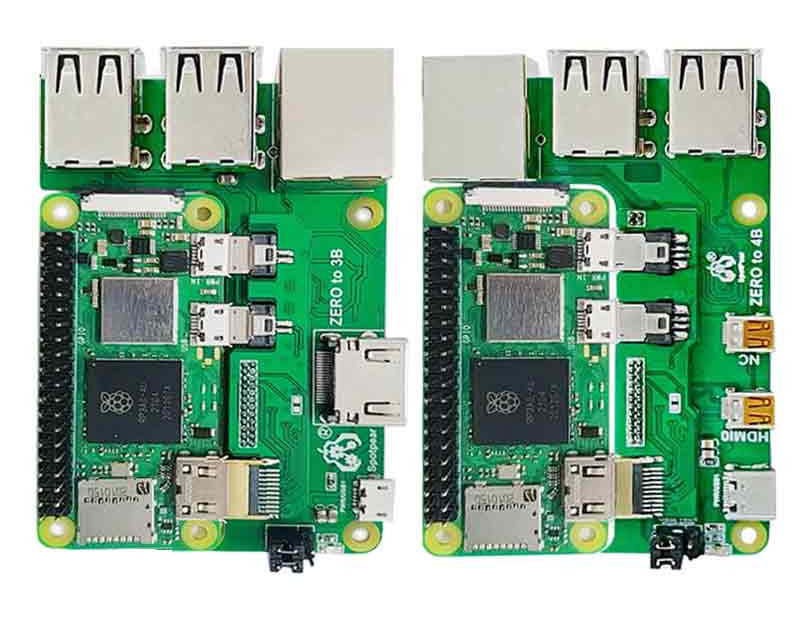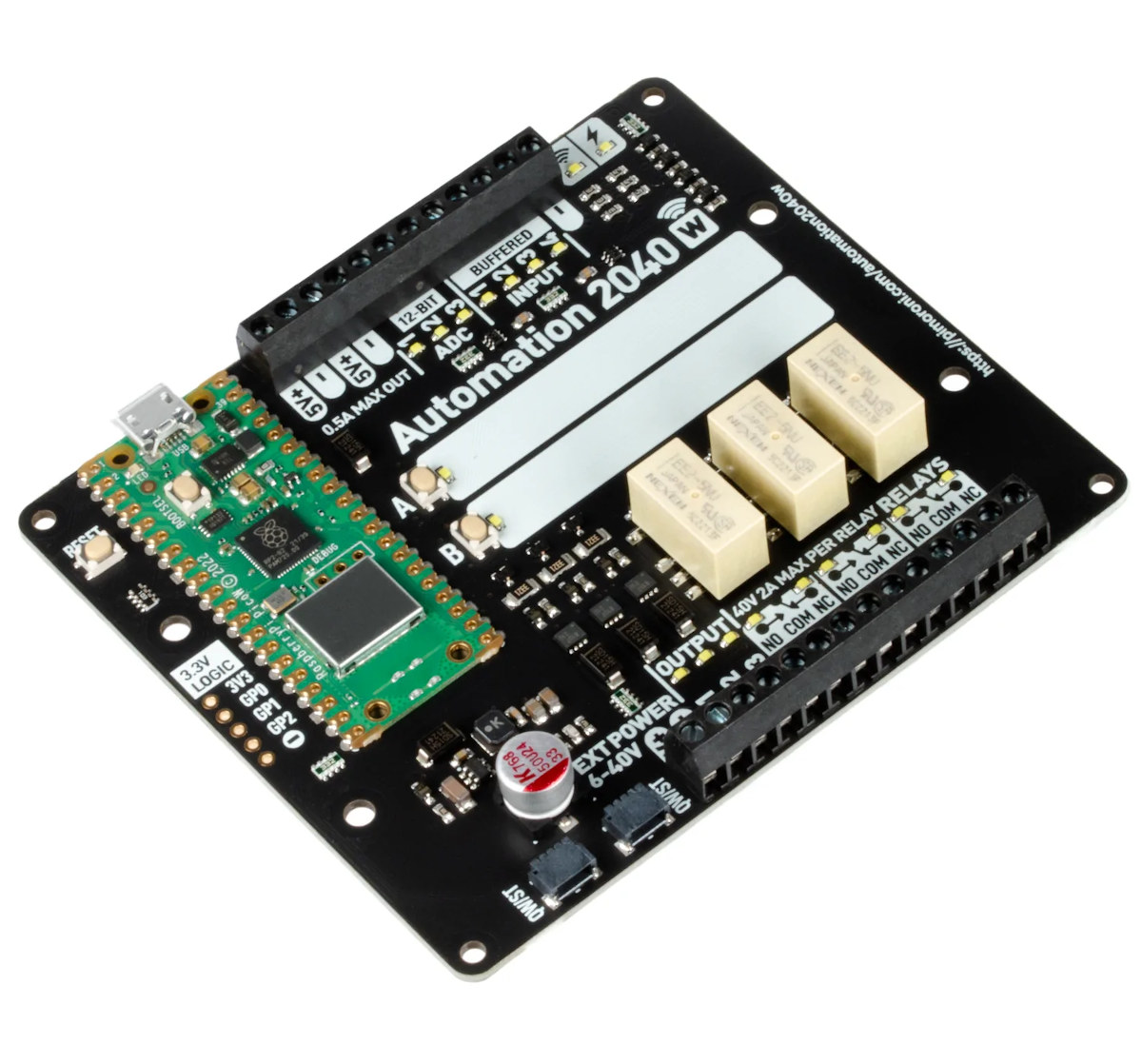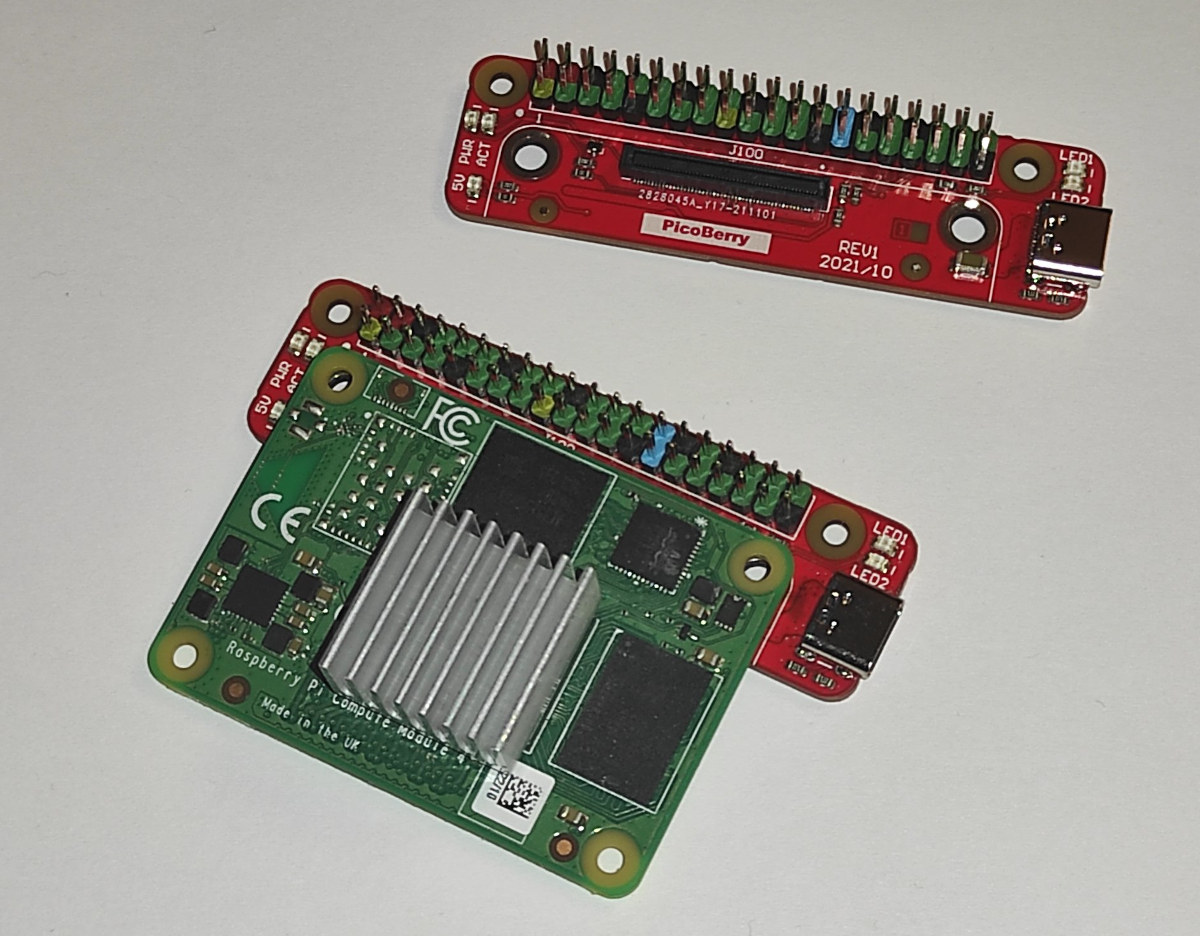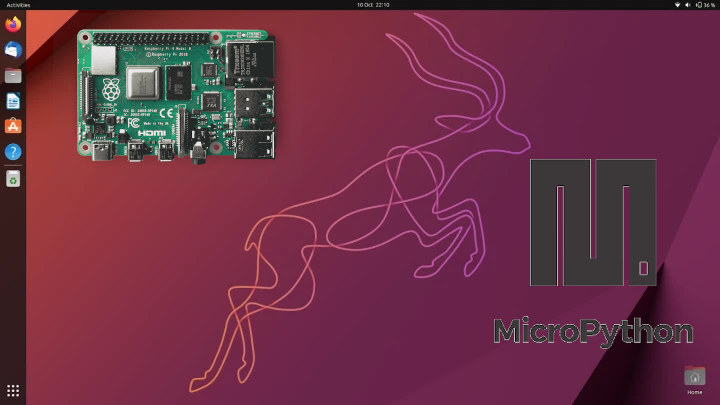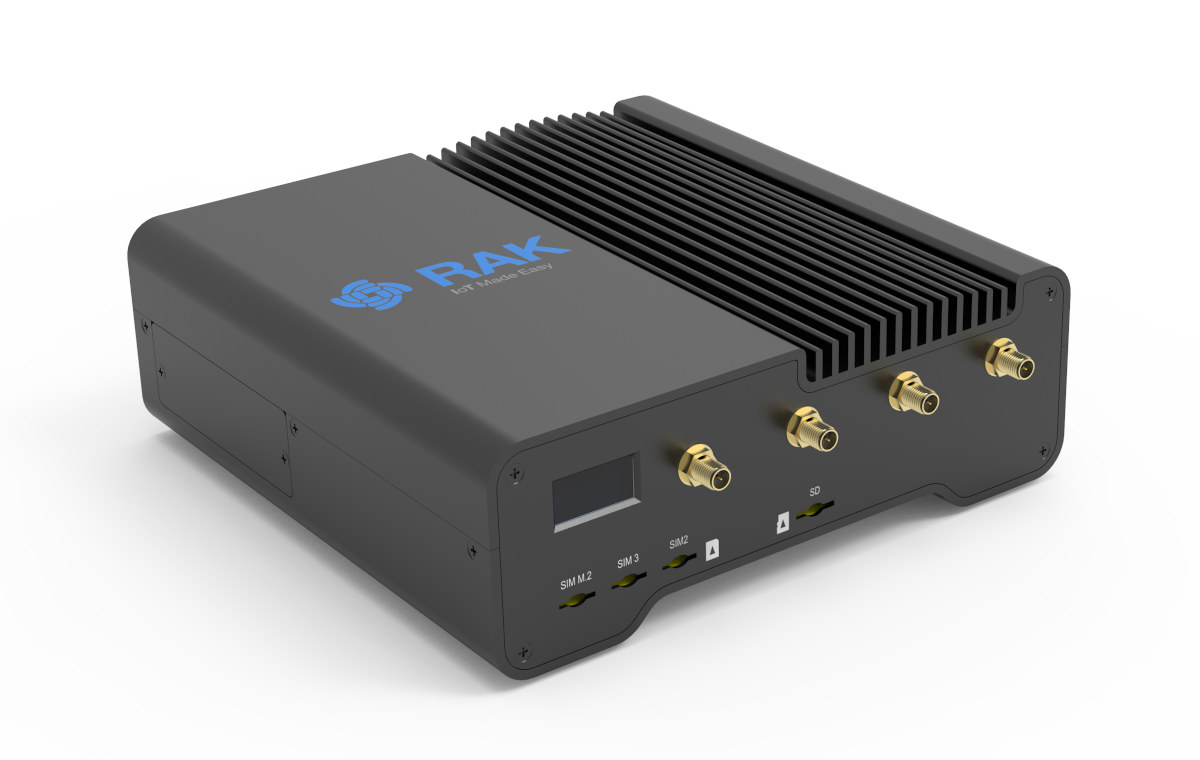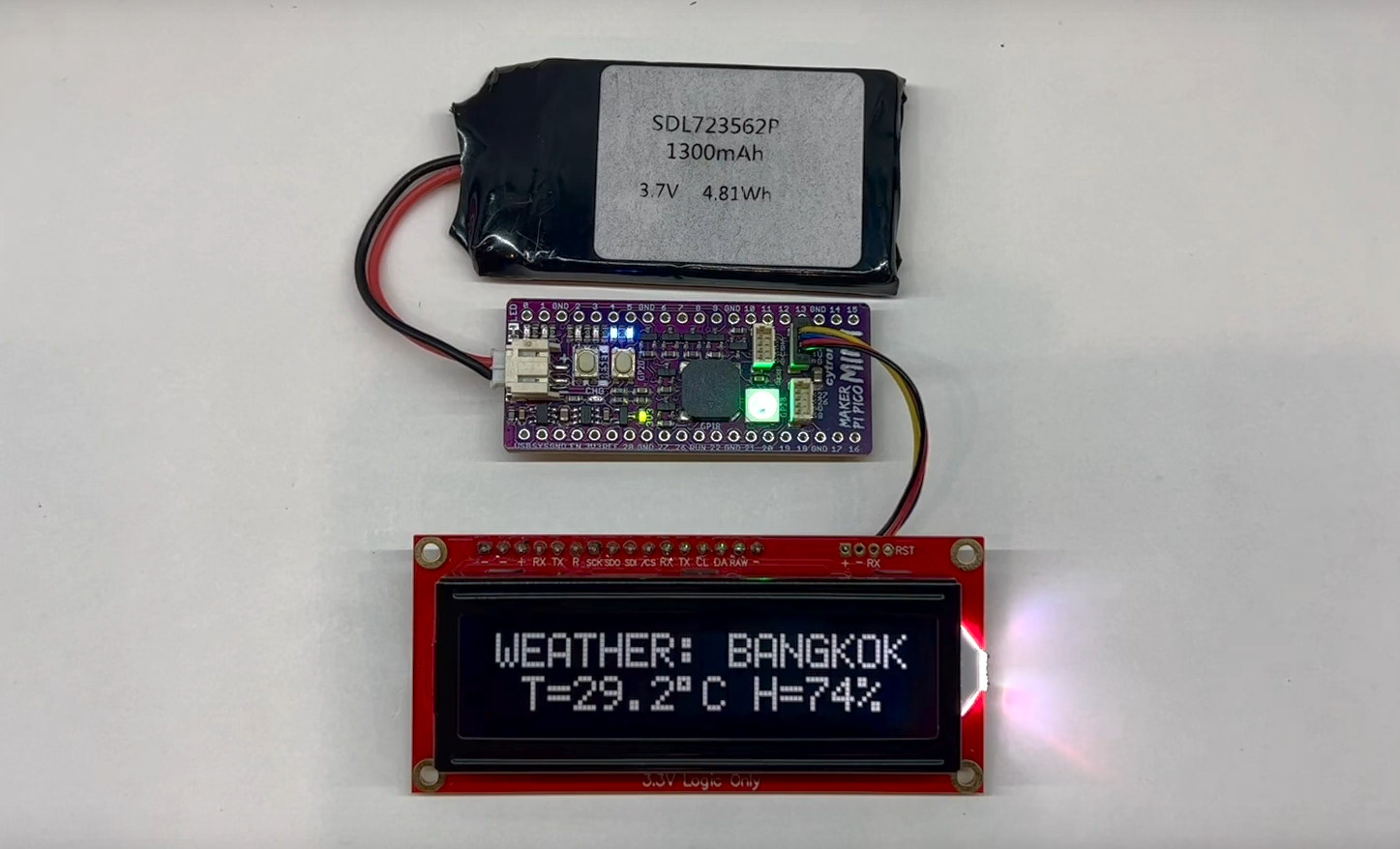myCobot 280 Pi is a versatile robotic arm with a 6 degree of freedom design. It was developed by Elephant Robotics using the Raspberry Pi 4 board as the main controller. The robot is compact and delivers stable operation making it ideal for confined spaces. It can also be programmed in a variety of languages, is easy to use, and offers a lot of features. It is suitable for those who are interested in learning how to program a robotic arm controller and for engineering projects. Unboxing myCobot 280 Pi The myCobot 280 Pi arm has a working range of 280 mm, weighs 850 grams, and can handle a payload of up to 250 grams. It is powered by 6 servo motors, one for each degree of freedom, and comes with a 5×5 matrix LED display, and supports LEGO parts as well. Controlled by a Raspberry Pi 4 single board […]
uConsole is a modular Arm or RISC-V handheld computer with optional 4G connectivity
Clockwork’s uConsole is a modular handheld computer with a 5-inch display, a built-in keyboard, and based on a carrier board supporting various Arm or RISC-V modules compatible with the Raspberry Pi CM3 or CM4 form factors. The device is offered with a system-on-module with up to 4GB RAM, a WiFi 5 and Bluetooth 5.0 wireless module, features micro HDMI video output, USB ports, and an audio jack, plus expansion connectors for more advanced users, and takes two 18650 batteries for power. The company also offers a 4G LTE module for cellular connectivity. The mainboard, called ClockworkPi v3.14 revision 5, offers the following: System-on-module socket – 200-pin DDR2 SODIMM socket compatible with Raspberry Pi CM3 and, through an adapter, Raspberry Pi CM4 and compatible modules Storage – MicroSD card socket Video Interfaces 40-pin MIPI DSI connector micro HDMI interface for external display Audio – 3.5mm audio jack with headphone and microphone […]
Adapters convert Raspberry Pi Zero 2 W into Raspberry Pi 3 or 4
Spotpear’s Raspberry Pi Zero 2 W to Raspberry Pi 3/4 adapters would not exist in a “normal” world of abundance that still existed a little less than 3 years ago. But I suppose extraordinary times require extraordinary adapters… If you have a spare Raspberry Pi Zero 2 W lying around but would rather like getting the ports from a Raspberry Pi 3 or Raspberry Pi 4, Spotpear has designed three adapters that can also be used as USB docks from a computer or mobile phone. The first adapter the “ZERO to 4B” will get you a Raspberry Pi 4-looking SBC with a Raspberry Pi RP3A0 system-in-package (Quad-core Cortex-A53 CPU + 512 MB RAM), and most of the same ports, except only three USB 2.0 Type-A ports are available with a maximum speed of 480 Mbps, and only one HDMI output due the inherent limitations of the Raspberry Pi Zero 2 […]
Automation 2040 W board supports 6V to 40V I/Os, ships with Raspberry Pi Pico W
Pimoroni Automation 2040 W is an industrial/automation controller based on the Raspberry Pi Pico W board that supports I/Os from 6V up to 40V and offers 2.4GHz WiFi 4 connectivity. The board offers plenty of interfaces including the ADC inputs, four digital inputs, three digital outputs, and three relays whose signals are all available through screw terminals, as well as two Qwiic/STEMMA QT connectors for further expansion. Automation 2040 W specifications: Controller – Raspberry Pi Pico W with Raspberry Pi RP2040 dual-core Cortex-M0+ microcontroller @ 133 MHz with 264KB SRAM, 2MB flash, 802.11b/g/n WiFi 4 module I/Os 3x 12-bit ADC inputs up to 40V 4x digital inputs up to 40V 3x digital sourcing outputs at V+ (supply voltage) with 4A max continuous current 2A max current at 500Hz PWM 3x relays (NC and NO terminals) supporting 2A up to 24V, 1A up to 40V 3.5mm screw terminals for inputs and […]
Miniature Raspberry Pi CM4 carrier board only exposes USB-C port and 40-pin GPIO header
Mirek Folejewski’s (aka Mirko Electronics) PicoBerry is an open-source hardware, miniature Raspberry Pi CM4 carrier board with just a USB Type-C port for power, a 40-pin Raspberry Pi GPIO header, and barely anything else. At just 70x20mm, the 2-layer board only adds a few LEDs, namely the ACT/PWR LEDS and two user LEDs, and supports any Raspberry Pi CM4 module with eMMC flash, but not the Raspberry Pi CM4 Lite since the board does not include a microSD card slot. PicoBerry specifications: Supported system-on-modules – Raspberry Pi CM4 with eMMC flash, and possibly compatible SoMs such as Radxa CM5 or Pine64 SoQuartz64 USB – USB Type-C for power Expansion – 40-pin GPIO header with the same layout as on Raspberry Pi 4 or other Pi boards with a 40-pin header Misc – ACT/PWR LEDs, 2x user LEDs (green.red) Power Supply – 5V DC/3A via USB-C port, Dimensions – 70x20mm (2-layer […]
Ubuntu 22.10 released with MicroPython and improved Raspberry Pi display support
Canonical has just released Ubuntu 22.10 “Kinetic Kudu” with improved desktop usability and performance, upgrade enterprise management tooling, and tools to optimize developer workflows, but highlights most relevant to CNX Software readers are the inclusion of MicroPython and improved embedded display support for Raspberry Pi. It feels like Ubuntu 22.04 LTS was just recently outed, but six months have already passed and Ubuntu 22.10 interim release is out. Some of the generic changes include: Toolchain updates to Ruby, Go, GCC and Rust OpenSSH server (sshd) is only activated when an incoming connection request is received to lower the memory footprint on resource-constrained devices A new debuginfod service to help developers and admins debug programs shipped with Ubuntu Landscape 22.10 beta to run and manage Ubuntu server to desktop on most architectures including Arm and RISC-V GNOME 43 with GTK4 for improved performance and consistency. Pipewire audio platform with better Bluetooth […]
WisGate Connect Raspberry Pi CM4 gateway supports 2.5GbE, WiFi 6, BLE, LoRaWAN, 4G, 5G, and more
RAKwireless has just introduced the WisGate Connect gateway based on Raspberry Pi CM4 system-on-module with support for Gigabit and 2.5Gbps Ethernet plus various optional wireless connectivity option that can be added through Mini PCIe or M.2 sockets as well as expansion through WisBlock IO connectors. Wireless options include LoRaWAN, 4G LTE, 5G, WiFi 6, Zigbee, WiFi HaLoW, and more, while WisBlock modules enable features such as methane sensor, motor current sensor, temperature sensor, pressure control, and valve control among many others. WisGate Connect (RAK7391) specifications: SoM – Raspberry Pi CM4 with Broadcom BCM2711 quad-core Cortex-A72 processor @ 1.5GHz, 1 to 8Gb DDR4, optional 8 to 32GB eMMC flash, optional WiFi 5 and Bluetooth 5.0 LE Storage – MicroSD card socket for CM4 Lite modules only Video Output – HDMI 2.0 up to 4Kp60, 22-pin MIPI DSI connector Camera I/F – 2x 22-pin MIPI CSI connectors Networking Wired – Gigabit Ethernet […]
Making a weather station with Maker Pi Pico Mini board and SparkFun SerLCD display
Cytron’s Maker Pi Pico Mini comes with a Raspberry Pi Pico or Raspberry Pi Pico W microcontroller board. It has the same features as the larger Maker Pi Pico including a GPIO LED, WS2812B Neopixel RGB LED, a passive piezo buzzer, programmable push buttons, and a reset button. I would like to thank Cytron for sending the Maker Pi Pico Mini board fitted with a Raspberry Pi Pico W as well as a character RGB LCD and a 3.7V Lithium Polymer battery. In this tutorial, we will show how to make an Internet connected weather station with the Maker Pi Pico Mini board using Arduino code and the OpenWeather API. We’ve already covered the Maker Pi Pico Mini board, so we’ll have a closer look at the accessories SparkFun SerLCD character display The SparkFun SerLCD is a 16×2 character display with a Microchip ATmega328P microcontroller that handles commands sent from […]


